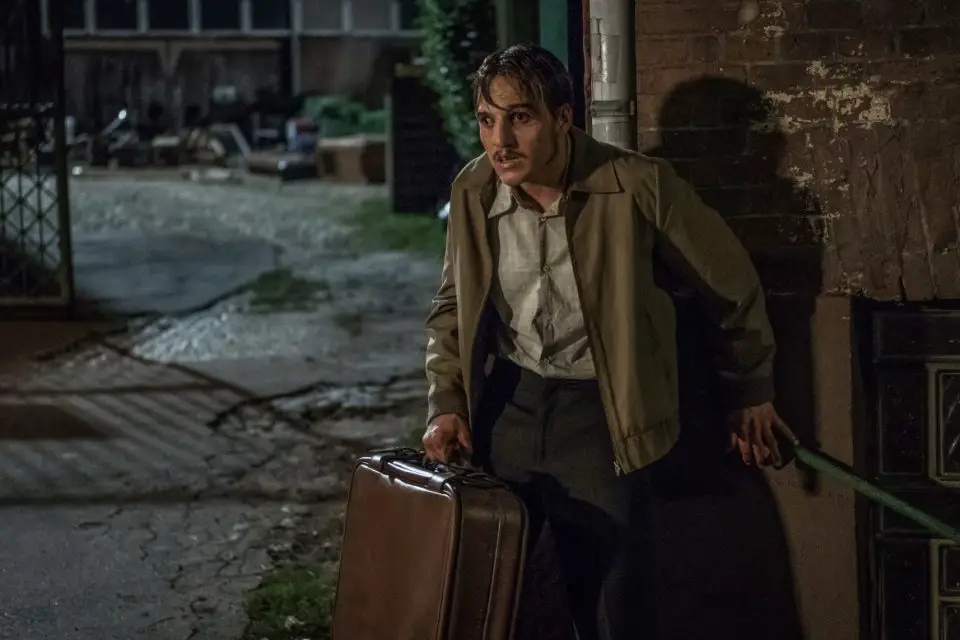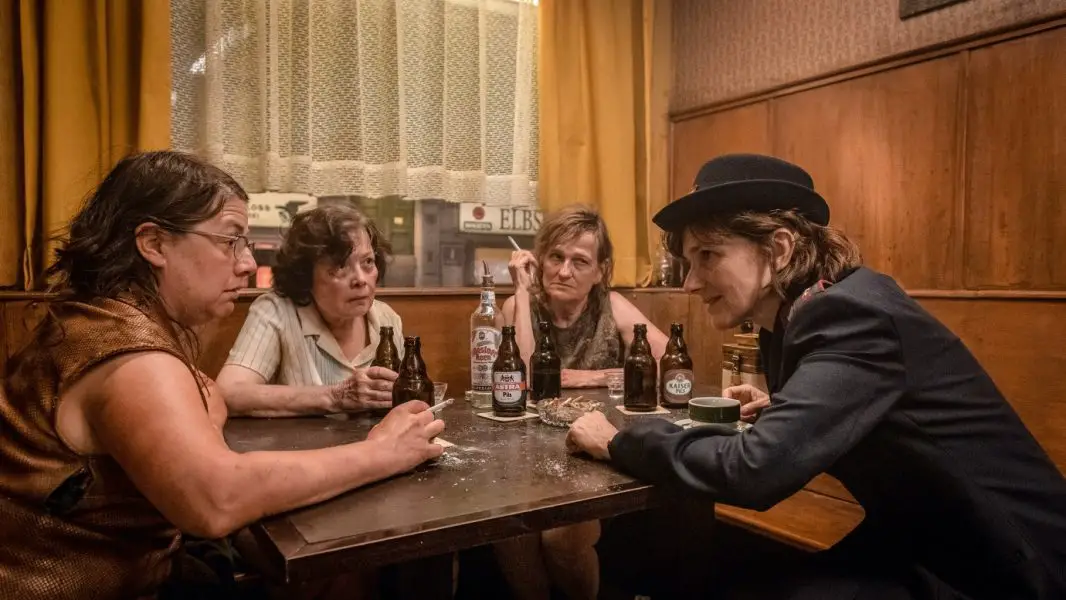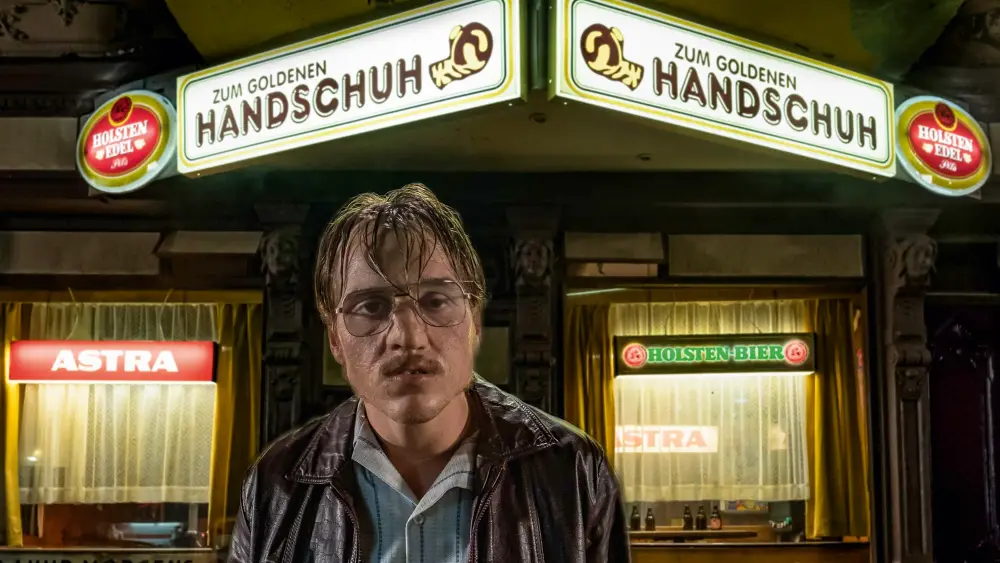Fantastic Fest Review: ‘The Golden Glove’ Makes Audiences Question Their Morality

The following article is a part of Full Circle’s coverage of Fantastic Fest 2019.
The Golden Glove is a hard film to watch, let alone discuss. Based on the exploits of German serial killer Fritz Honka, writer-director Fatih Akin’s brings a thoroughly disturbing chronicle of a horrific man to the screen. But where it differs from other films of a similar subject is its refusal to offer comment on Honka’s actions. And I don’t think I’ll ever forget it.
Akins’ 1970s Hamburg is a hellscape. Poverty and filth run amok, with the most downtrodden hanging out in a bar whose name roughly translates to “The Golden Glove”. Sitting amongst the patrons of this bar is Fritz Honka (Jonas Dassler). He’s a short man, with a lazy eye and grimy teeth, casting his gaze between the women in the bar. To the audience’s horror, his proclivities don’t stop at staring.
Akin follows Honka as he gets these women drunk, takes them back to his dingy apartment, and attempts (and sometimes succeeds) to have sex with them. By the way, he does all of this before he murders them brutally and disposes of their bodies. Where other films choose to imply or avoid the more grisly aspects of these crimes altogether, Akin chooses to show everything that happens during the film’s time frame. At no point does Akin comment on any of his actions. All he does is that he lets it play out in front of us.
This objective approach the actions of Honka occupies much of the run time. It’s a bold choice, although one that will not be everyone. I was deeply uncomfortable seeing these extreme actions play out onscreen. Yet it’s haunted me ever since. Seeing a disturbed man like Honka, whose issues with substances like alcohol and controlling his rage, made me physically ill at moments. As an audience member, I felt complicit.
READ: Fantastic Fest Review- ‘Jojo Rabbit’ Is The Movie We Need Right Now
However, this may be what makes The Golden Glove such an achievement in film-making. Dassler plays Honka while also drawing clear parallels between his actions and his way of thinking, which makes him all the more an enigma. He’s a puzzle you can’t look away from, no matter how much you try. The fact that Akin and Honka, respectively, make such an unflinching portrait of violence and such a sick man so captivating makes you ask questions about yourself.
Why does this movie draw me in? Is there anything to be learned by this man’s story? Are we glorifying him by looking at his exploits? I don’t know, and I don’t think I ever will. Quite frankly, I don’t think I’ll ever stop asking these questions to myself.
Critically, the people around Honka show indifference to his strange behavior. The people at the bar treat him like a normal part of the crew, despite his obvious mental deficiencies and him constantly bringing home old women from the bar who go missing. At a point in the film, a young man seems to almost enjoy marveling at the strange behavior of Honka and the other “The Golden Glove” patrons.
That fascination with the grotesque stayed with me. The Golden Glove is currently Germany’s entry for the “Best Foreign Language” film at this year’s Academy Awards. But I feel it defies any sort of rating. I could see people hailing it as a masterpiece, with others being far more unfavorable, and I don’t know which is more correct. All I know is that it made me re-examine my relationship with violence in media and engaging in true-crime narratives in general. Sitting in that theater, watching evil in its purest form onscreen, is an experience I don’t think I’ll ever forget. –James Preston Poole
Rating: N/A (Recommended)




